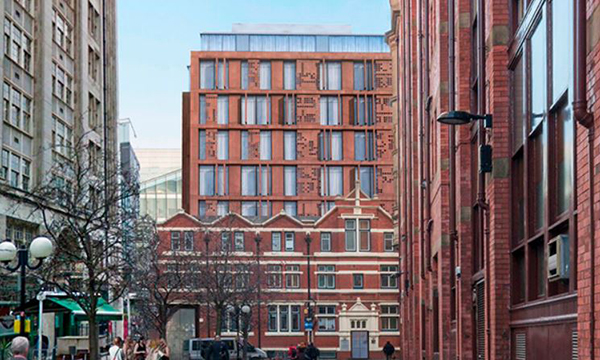As the London office market has slowed, the major City developers are looking at alternative sectors for investment which could create some promising new construction opportunities. New housebuilding & build-to-rent, serviced work space and office refurbishment are among the sectors which property companies are pursuing.
Grosvenor Group, the privately-owned property group best-known for owning much of Mayfair and Belgravia, has recently announced plans to triple the size of its strategic land business and create a portfolio of at least 30,000 homes over the next five years. The group says it aims to be a market leader in large scale communities, which offer high quality urban designs.
Grosvenor plans to take sites of 2,000-5,000+ homes through planning and design and build them in areas with buoyant local economies where new homes are in short supply. To this end, it has expanded its homes pipeline to 9,300 from 2,100 last summer. The group is developing a scheme of 1200 homes at Trumpington Meadows in Cambs and has recently appointed Redrow Homes to deliver a development of 900 homes at Barton Park near Oxford, which will be one of 10 NHS healthy new towns.
Grosvenor is also progressing a huge £500 million investment involving the construction of some 1,500 rental homes on the site of a former biscuit factory in Bermondsey, together with a school, new offices and public places.
Meanwhile, the City’s confidence in the potential for the rented homes sector is reflected in plans unveiled last month by investment group, Harwood Capital, to raise £175 million through a stock market float to set up a fund to invest in private rented homes in UK regions.
The UK’s second largest quoted property group, British Land is also looking at the ‘build to rent’ sector, with potential developments in Ealing and Rotherhithe.
Flexible space
Having witnessed the expansion of the serviced office sector, British Land has also set up a thriving flexible office brand, Storey which it plans to extend to up 10 per cent of its own office portfolio. Rather than letting space to serviced office operators, other major quoted property groups such as Land Securities and Great Portland Estates are also looking at developing their own flexible office brands.
Great Portland Estates recently pointed to encouraging early interest in its own fitted-out flexible space, which offers simplified leases and terms starting from one month. It has recently made its first letting of flexible space at Elm Yard, WC1.
Refurbishment prospects
As well as creating tender opportunities for fit-out contractors, the growth of serviced space will reinforce construction prospects in the office refurbishment market. Here , Glenigan Construction data shows that detailed plans have recently been granted and tenders recently returned on one of the City’s largest office refurbishment projects, Stanhope’s £50 million construction project involving alternations/extensions 31 Gresham Street (Glenigan Project ID: 17239967). Work is set to start in the new year.
Glenigan Construction data shows that tenders have also recently been returned on a £4 million office refurbishment for a British Land scheme at 19 Liverpool Street in the City where work is set to start in Spring 2019 (Glenigan Project ID: 18255913).
Source: Glenigan


